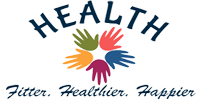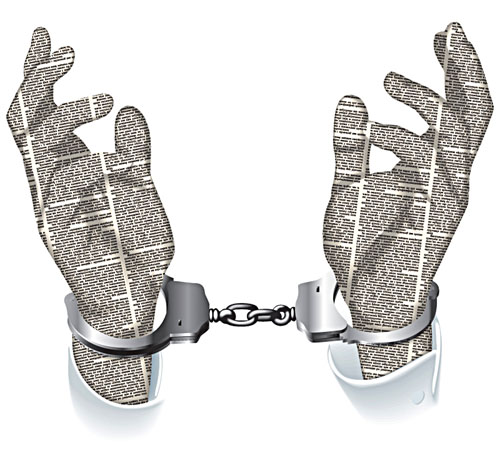తల్లి పాలతో కొలెస్ట్రాల్ సమస్యకి చెక్
మీ పిల్లలు భవిష్యత్తులో కొలెస్ట్రాల్ సమస్యలతో బాధపడకూడదంటే వారు పుట్టినప్పటి నుంచి రెండేళ్ళ వరకు చక్కగా తల్లిపాలు ఇవ్వండి అంటున్నారు లండన్ లోని సెయింట్ జార్జి మెడికల్ స్కూల్ పరిశోధకులు . తల్లిపాల గురించి ప్రపంచ వ్యాప్తంగా ఇంకా ఎన్నో పరిశోధనలు జరుగుతున్నాయి . తల్లిపాలలోని సుగుణాలు ఎన్నో బైటకి వస్తూనే వున్నాయి అయితే ఓ పరిశోధనలో చిన్నప్పుడు తల్లిపాలు తాగిన పిల్లలు తర్వాత తర్వాత కొలస్ట్రాలా బారిన పడరాని గుర్తించారు పరిశోధకులు. ఈ పరిశోధనలో భాగంగా టీనేజ్ లో వున్న1500 మందిని పరిశీలించారు. తర్వాత వారిలో ఎంతమంది తల్లిపాలు తాగి పెరిగారు , ఎంతమంది చిన్నతనంలో పోతపాలు మీద ఆధారపడ్డారన్నది వారి తల్లితండ్రులను ప్రశ్నించి తెలుసుకున్నారు . ఆ తర్వాత శిశువుల జీవనసరళినీ, వివిధ వయసుల్లో వారి కొలస్ట్రాల్ స్థాయిలు ఎలా వున్నాయన్నది అధ్యయనం చేసారు. లండన్ లోని సెయింట్ జార్జి మెడికల్ స్కూల్ పరిశోధకుల అధ్యయన ఫలితాలు చాలా ఆసక్తిగాకరంగా వుంటాయి. చిన్నతనంలో తల్లిపాలు తాగిన పిల్లలు పెరిగి పెద్దయ్యాక కొలెస్ట్రాల్ నిల్వలు తక్కువగా ఉండడం వల్ల వీరికి భవిష్యత్తులో గుండె జబ్బులు వచ్చే అవకాశం 10 శాతంగా తగ్గుతుందని గుర్తించారు సో ఎలా చూసిన తల్లి పాలు శ్రేష్టం. అవి పిల్లల మేధస్సుకు, ఆరోగ్యానికి ఎంతో సహాయపడతాయి.... ....రమ
read moreచిరుతిళ్లే కాదు - వాటి కవర్లూ ప్రమాదమే
ఒకప్పుడు శుభ్రంగా చేతులు కడుక్కుని కడుపునిండా తినేవారం. కాలం మారిపోయింది. రోడ్డు మీద అలా నడుస్తూ నడుస్తూ... మధ్యలో ఒక శాండ్విచ్ కొనుక్కొని దానిని సుతారంగా పేపర్లోనే ఉంచి తినడం అలవాటైపోయింది. ఇలా చిరుతిళ్లకు చుట్టి ఉంచే పేపర్లు, డబ్బాల వల్ల నానారకాల రోగాలూ వస్తాయని ఓ పరిశోధన హెచ్చరిస్తోంది. అమెరికా నడిబొడ్డున ఈ పరిశీలిన ఏదో మన దగ్గర జరిగింది కాదు. అమెరికాలో ఏకంగా 400 నమూనాలను పరిశోధించిన తేల్చిన విషయం. అవి కూడా ఆషామాషీగా రోడ్డు పక్కన కనిపించే బేకరీలలోని నమూనాలు కావు. మెక్డొనాల్డ్స్, బర్గర్ కింగ్ వంటి 27 ప్రముఖ దుకాణాల నుంచి సేకరించారు. దేశంలోనే ప్రముఖ నగరాలైన వాషింగ్టన్, శాన్ ఫ్రాన్సిస్కో వంటి నగరాలలో ఈ సేకరణ సాగింది. PFAS శాండ్విచ్లను చుట్టి ఉంచే పేపర్లు, పేస్ట్రీల డబ్బాలు, చిప్స్ వేసి ఇచ్చే కవర్లు... ఇలా అన్నిరకాల ఆహారపదార్థాలతో పాటుగా వచ్చే సరంజామాలో polyfluoroalkyl substances (PFASs) అనే విష రసాయనాలు కనిపించాయి. పేపర్లు, కవర్లు మరకలు అంటకుండా తళతళలాడుతూ ఉండేందుకు, ఈ తరహా రసాయనాలను చేరుస్తున్నట్లు కనుగొన్నారు. నాన్స్టిక్ వంటపాత్రలలోనూ, మరకలు అంటని వస్తువుల తయారీలోనూ ఈ రసాయనాలను వాడుతూ ఉంటారు. శాండ్విచ్లను చుట్టి ఉంచే 40 శాతం పేపర్లలో ఈ PFASల ఆనవాళ్లు కనిపించాయి, ఇక బ్రెడ్ను అందించే 60 శాతం కవర్లలో PFASలు దర్శనమిచ్చాయి. మిగతా పదార్థాలతో పాటుగా వచ్చే సరంజామాలోనూ అంతోఇంతో ఆనవాళ్లు కనిపించాయి. అయితే ఏంటట! ఈ PFASల ఉనికి వల్ల ప్రమాదం ఏముంటుందిలే అనుకోవడానికి లేదు. ఎందుకంటే చిరుతిండితో పాటుగా ఇవి శరీరంలోకి చేరతాయనీ, ఆ తర్వాత అవి ఒంట్లో పేరుకుపోతాయనీ తేలింది. అలా పేరుకుపోయిన PFASలు మన రక్తంలో కలిసిపోయి నానారకాల రోగాలకు దారితీస్తాయని అంటున్నారు. PFASలు కాలేయం, థైరాయిడ్ వంటి అనేక అవయవాలను దెబ్బతీయడంతో పాటుగా క్యాన్స్ర్కు సైతం దారితీస్తాయని ఈపాటిలే అనేక పరిశోధనలు రుజువు చేశాయి. వదల బొమ్మాలీ వదల ఈ PFASలు ఒక్కసారి కనుక శరీరంలోకి చేరితే, అవి ఓ పట్టాన వదిలి పోవట! శరీరంలో పేరుకున్న ఓ 50 శాతం PFASలు వదలడానికి కూడా ఏళ్ల తరబడి పడుతుందట. అంతేకాదు! ఇవి పర్యావరణంలో కూడా అంతగా కలవవని అంటున్నారు. విచిత్రం ఏమిటంటే తాము ఆహారపదార్థాలను అందిస్తున్న పేపర్ల వెనుక ఇంత విషం దాగుందని సదరు దుకాణాలకు కూడా తెలియవట. కాబట్టి ఈ విషయమై ప్రభుత్వాలే చొరవ చూపాలనీ, వినియోగదారులు జాగ్రత్త వహించాలనీ పరిశోధకులు హెచ్చరిస్తున్నారు. - నిర్జర.
read moreపార్టీలో బెలూన్ పేలితే... చెవుడే!
ఓ ఇరవై ఏళ్ల క్రితం పిల్లల సంగతి వేరు. వారి పుట్టినరోజులు చాలా సాదాసీదాగా సాగిపోయేవి. ఇంట్లో పిండివంటలు చేసుకోవడం, కొత్త బట్టలు వేసుకోవడం, బడిలో చాక్లెట్లు పంచిపెట్టడంతోనే అవి ముగిసిపోయేవి. కానీ ఇప్పటి పరిస్థితి వేరు. పుట్టినరోజు వచ్చిందంటే పార్టీ తప్పనిసరి. ఆ పార్టీకి వన్నె తెచ్చేందుకు రంగురంగుల బెలూన్లూ సరేసరి! కానీ ఆ బెలూన్లతో జర జాగ్రత్తగా లేకపోతే చెవుడు తప్పదంటున్నారు. కెనడాకు చెందిన కొంతమంది పరిశోధకులు పార్టీలో వాడే బెలూన్లు పేలినప్పుడు ఎంత చప్పుడు వస్తుందో చూడాలనుకున్నారు. ఇందుకోసం వారు అత్యాధునికమైన మైక్రోఫోన్లను ఉపయోగించి బెలూన్లు పేలిన చప్పుడుని రికార్డు చేశారు. ఊదుతూ ఉండగా బెలూను పేలినప్పుడు ఎంత చప్పుడు వస్తుంది, దానిని సూదితో పొడిచినప్పుడు ఎన్ని డెసిబుల్స్ ఉత్పత్తి అవుతాయి, బెలూను పేలేదాకా నొక్కినప్పుడు ఎంత శబ్దం వస్తుంది అంటూ లెక్కలు వేశారు. బెలూను పేలేదాకా ఊదుతూ ఉంటే కనుక వచ్చే చప్పుడు అంతా ఇంతా కాదని తేలింది. ఆ సమయంలో ఏకంగా 168 డెసిబిల్స్ చప్పుడు నమోదు అయ్యిందట. వివిధ శబ్దాల తీవ్రతను మనం డెసిబుల్స్లో కొలుస్తామన్న విషయం తెలిసిందే కదా! ఈ డెసిబుల్స్ స్థాయి కనుక 140 పాయింట్లను దాటితే వినికిడి సమస్య ఏర్పడే ప్రమాదం ఉంది. అలాంటిది ఏకంగా 168 డెసిబుల్స్ శబ్దాన్ని అకస్మాత్తుగా వినడం అంటే.... కోరి కోరి చెవుడుని తెచ్చుకున్నట్లే! చెవి పక్కన ఒక తుపాకీ పేలినప్పుడు వచ్చే శబ్దం కంటే (165 డెసిబుల్స్) ఈ శబ్దం ఎక్కువ కావడం గమనార్హం. బెలూన్ని సూదితో పేల్చినా, కేవలం ఒత్తిడి వల్ల అది పేలినా కూడా తీవ్రమైన శబ్దాలు ఉత్పన్నం అవుతున్నట్లు గమనించారు. ఒక్కసెకనుపాటు బెలూను పేలుడు శబ్దాన్ని విన్నా కూడా శాశ్వతంగా వినికిడి లోపం తలెత్తే అవకాశం ఉంది. సదరు శబ్దానికి మన చెవి అంతర్భాగాలలో ఉండే కేశాలు దెబ్బతినడం వల్ల ఇలాంటి సమస్య ఏర్పడుతుంది. కాబట్టి పార్టీలో ఆకతాయితనానికి పోయి బెలూన్లను పగలకొట్టడం మానుకోవాలి. ఇంట్లో పార్టీ చేసుకునే ముందు కూడా ఈ విషయమై పిల్లలకు స్పష్టమైన హెచ్చరికను అందించాలి. బెలూన్లను ఊదేటప్పుడు కూడా ఓ స్థాయికి మించి ప్రయత్నించకూడదు, లేదా చెవిలో దూది పెట్టుకునన్నా ఊదాలి. కాదూ కూడదూ అనుకుంటే!!! - నిర్జర.
read moreఇలా చేసుంటే జయలలిత బతికేదేమో!
శరీరంలో ఏ అవయవం చెడిపోయినా దాని బదులు మరో అవయవాన్ని మార్పిడి చేసే అధునాతన చికిత్సలు అందుబాటులోకి వచ్చాయి. ఊపిరితిత్తులు కూడా అందుకు మినహాయింపేమీ కాదు. కానీ పూర్తిగా చెడిపోయిన ఊపిరితిత్తులను తీసి పక్కన పెట్టేసిన అరుదైన సంఘటన ఒకటి జరిగింది. మున్ముందు ఇలా కూడా చేయవచ్చన్న ఓ కొత్త మార్గాన్ని సూచిస్తోంది. మూడేళ్లుగా అదే సమస్యతో కెనడాకు చెందిన 32 ఏళ్ల మెలీసాది అందమైన కలలాంటి జీవితం. చక్కగా చూసుకునే భర్త, వెన్నంటి ఉండే తల్లి, ముద్దుముద్దుమాటల రెండేళ్ల పాప... ఇదీ మెలీసా కుటుంబం. కాకపోతే ఆమెది ఒక్కటే సమస్య. మూడేళ్లుగా ఆమె cystic fibrosis అనే ఊపిరితిత్తులు సమస్యతో బాధపడుతోంది. అందుకోసం మంచి శక్తివంతమైన యాంటీబయాటిక్స్ను వాడుతో్ంది. అకస్మాత్తుగా ఓ రోజు అంతా చక్కబడుతోందనుకున్న సమయంలో ఓ రోజు మెలీసాకి వ్యాధి తిరగబెట్టింది. దానికి తోడు ఇన్ఫ్లూయెంజా కూడా దాడి చేయడంతో విలవిల్లాడిపోయింది. ఆమె ఊపిరితిత్తుల నిండా రక్తం, కఫం పేరుకుపోయింది. లోపల గాలి పీల్చుకునేందుకే చోటు మిగల్లేదు. నీటిలో మునిగిపోతున్న పరిస్థితి ఎలా ఉంటుందో అలా తయారైంది మెలిసా! వెంటనే ఆమెకు Extra-Corporeal Lung Support (ECLS) అనే పద్ధతి ద్వారా కృత్రిమ శ్వాసని అందించడం మొదలుపెట్టారు. కానీ.... మెలీసాకు కృత్రిమంగా శ్వాసని అందిస్తున్నారు సరే! కానీ ఆమె ఊపిరితిత్తులు పూర్తిగా చెడిపోయాయి. అవి ఇక బాగుపడి శ్వాసని తీసుకునే పరిస్థితిలో లేవు. కాబట్టి మెలీసాకు మరొకరి ఊపిరితిత్తులలను మార్పిడి చేయాల్సిందే! కానీ అందుకోసం కనీసం ఓ వారం రోజులు పట్టేట్లుంది. పోనీ ఈలోగా ఎలాగొలా కృత్రిమ శ్వాస ద్వారా ఆమెను బతికిద్దామంటే మరో సమస్య ఎదురైంది. ఆమె ఊపిరితిత్తులు పూర్తిగా పాడైపోవడం వల్ల, వాటి నుంచి మిగతా శరీరమంతా ఇన్ఫెక్షన్ సోకడం మొదలైంది. అప్పటికే ఆ ఇన్ఫెక్షన్ కారణంగా ఆమె కిడ్నీలు దెబ్బతినిపోయాయి. మరొక్క రాత్రి కనుక ఆమెను అలాగే ఉంచితే, శరీరమంతా విషమయంగా మారిపోయి ఆమె చనిపోవడం ఖాయమని తేలింది. ఒక్కటే మార్గం కొత్తగా అందించే ఊపిరితిత్తులను స్వీకరించేందుకు మెలీసా శరీరం సహకరించాలన్నా, ఆమెలో పాకుతున్న ఇన్ఫెక్షన్కు అడ్డుకట్ట వేయాలన్నా Toronto General Hospital (TGH) వైద్యులకు ఒకటే దారి తోచింది. అదే ఆమె ఊపిరితిత్తులను తీసేయడం. కానీ ఇంతవరకు రోజుల తరబడి ఊపిరితిత్తులను తీసి ఉంచే ధైర్యం ఎవ్వరూ చేయలేదు. ఏదైతేనేం! సాహసం చేసి చూద్దామనుకున్నారు TGH వైద్యులు. ముందడుగు వేశారు TGH వైద్యులు తొమ్మిదిగంటల పాటు కష్టపడి జాగ్రత్తగా మెలీసా ఊపిరితిత్తులను తొలగించారు. ఆ సమయానికి ఆమె ఊపిరితిత్తులు కఫంతో నిండిపోయి ఫుట్బాల్ అంత గట్టిపడిపోయాయట. అలా తొలగించిన వెంటనే ఆమె ఊపిరితిత్తులు స్థానంలో తాత్కాలికంగా కృత్రిమ ఊపిరితిత్తులను అమర్చారు. ఇక శరీరంలోని రక్తంలోంచి ఎప్పటికప్పుడు కార్బన్ డై ఆక్సైడ్ను తొలగించి, ఆక్సిజన్ను అందించేందుకు extracorporeal membrane oxygenation (ECMO) పరికరాన్ని అందించారు. మరో వారం రోజులు మెలీసాకు ఊపిరితిత్తులను దానం చేసే దాత దొరికారు. దాంతో ఆమెకు శాశ్వతమైన సహజమైన ఊపిరితిత్తులను అందించారు. ఇదంతా జరిగి దాదాపు ఎనిమిది నెలలు కావస్తోంది. ఇప్పుడు ఎలీసా చాలా ఆరోగ్యంగా ఉంది. తన రెండేళ్ల పాపని గంటల తరబడి అలసట లేకుండా ఆడిస్తోంది. మెలీసా సంఘటన ఇప్పుడు ప్రపంచవ్యాప్తంగా సంచలనం సృష్టిస్తోంది. ఎందుకంటే, ఊపిరితిత్తుల సమస్య తీవ్రతరం అయ్యే సందర్భాలలో వాటి నుంచి సోకే ఇన్ఫెక్షన్తో ప్రాణాలే పోతుంటాయి. యాంటీబయాటిక్స్కు ఊపిరితిత్తులు సహకరిస్తాయనో, కొత్త ఊపిరితిత్తులను అమర్చే దాకా అవి బాగుంటాయనో ప్రార్థిస్తూ.... రోగి ప్రాణాలను వదుల్తున్నా కూడా నిస్సహాయంగా చూస్తూ ఉండిపోవాల్సిన పరిస్థితి. జయలలిత విషయంలో కూడా ఆమె ఊపిరితిత్తులు సహకరించకపోవడం వల్లే ఊహించని మృత్యువు చేరువైందని చెబుతున్నారు. మరి ఆమెకు కూడా ఇలాంటి వైద్యం జరిగి ఉంటే.... - నిర్జర.
read moreపొడిబారే కళ్లు – Dry Eyes Syndrome
పొడిబారే కళ్లు – Dry Eyes Syndrome కంటి నీరు కేవలం మన బాధనో సంతోషాన్నో వ్యక్తం చేసేందుకే ఉపయోగపడదు. దాని వెనక బోలెడు ప్రయోజనాలు ఉంటాయి. కంటికి కావల్సిన తేమని అందించడం, కంట్లో ఏర్పడే దుమ్మూధూళి కణాలను బయటకి పంపేయడం, కనుపాపని సూక్ష్మక్రిముల నుంచి కాపాడటం... ఇలా కళ్లు చెమ్మగిల్లుతూ ఉండటం వల్ల చాలా లాభాలు ఉన్నాయి. కానీ కొంతమందికి కంట్లో తేమే ఏర్పడదు. అదే DRY EYE SYNDROME. ఇవీ లక్షణాలు - కంట్లో ఏదో పడినట్లు గరగరలాడుతూ ఉండటం. - తేమ లేకపోవడం వల్ల కళ్లు ఎర్రబారిపోవడం. - చూపులో స్పష్టత లేకపోవడం, కాంతిని చూడలేకపోవడం. - కళ్లు లాగుతున్నట్లుగా దురదగా అనిపించడం. - అకస్మాత్తుగా కళ్లవెంబడి నీరు కారడం. ఇవీ కారణాలు - వయసు పైబడే కొద్దీ Dry Eyes సమస్య ఏర్పడే అవకాశాలు ఎక్కువ. మరీ ముఖ్యంగా మెనోపాజ్ దశని దాటిన స్త్రీలలో ఈ సమస్య అధికంగా ఉండే అవకాశం ఉంది. ఆ సమయంలో శరీరంలోని హార్మోనుల పనితీరులో మార్పులు రావడం వల్ల ఇలా జరుగుతుంది. - అలెర్జీల కోసం వాడే యాంటీహిస్టామిన్స్ వంటి మందుల వల్ల. - కీళ్లజబ్బులు వంటి వ్యాధులు కూడా ఒకోసారి ఈ Dry Eyesను కలిగిస్తాయి. - సుదీర్ఘకాలం కాంటాక్ట్ లెన్స్లను పెట్టుకోవడం. - గంటల తరబడి కంప్యూటర్ స్క్రీన్ను చూస్తూ ఉండటం. - కళ్లు ఆర్పే అలవాటు తక్కువగా ఉండటం. - ధైరాయిడ్ సమస్య ఉన్నప్పుడు తగిన చికిత్స తీసుకోకపోవడం. - విటమిన్ ఏ లోపం. - తేమ తక్కువగా ఉన్న ప్రదేశాలలో నివాసం. - చలికాలంలో నిరంతరం రూం హీటర్లు వేసుకుని ఉండటం. చికిత్స Dry Eyesకు శాశ్వతమైన నివారణ అంటూ ఏమీ లేదు. కాకపోతే తాత్కాలిక ఉపశమనం కోసం వైద్యులు ఐడ్రాప్స్ను వాడమని చెబుతారు. పాశ్చాత్య దేశాలలో అయితే Tear plugs, lipiflow వంటి చిన్నపాటి శస్త్ర చికిత్సలు అందుబాటులో ఉన్నాయి కానీ మన దేశంలో ఇలాంటి చికిత్సలు తక్కువ. విటమిన్ ఏ, ఒమెగా 3 ఫ్యాటీ యాసిడ్స్ ఎక్కువగా ఉండే ఆహారం తీసుకోవడం వల్ల కొంతకాలానికి ఉపశమనం కలగవచ్చు. Dry Eyes సమస్య కంటిచూపుని దెబ్బతీసేంత ప్రమాదకరం కాకపోవచ్చు. కానీ దీని వలన కలిగే అసౌకర్యం అంతా ఇంతా కాదు. కాబట్టి ఈ సమస్య రాకుండానే జాగ్రత్తపడాలి. కంప్యూటర్ స్క్రీన్ వంక కళ్లని ఆర్పకుండా తదేకంగా గంటల తరబడి గడిపే అలవాటు మానుకోవాలి. దీంతో పాటుగా మంచి ఆహారం, తగినంత నీరు తీసుకుంటూ ఉంటే సమస్య అసలు మన దరికి చేరకపోవచ్చు. - నిర్జర.
read moreఖండాంతరాలు దాటుతున్న కాలుష్యం
మీరు ఓ పచ్చని పల్లెటూర్లో ఉన్నారు. ఆ ఊరి చుట్టుపక్కల ఓ వంద కిలోమీటర్ల వరకూ ఎలాంటి పరిశ్రమలూ లేవు. కాలుష్యాన్ని కలిగించే మరే ఇతర లక్షణమూ కనిపించదు. అయినా మీ ఊపిరితిత్తులలోకి కాలుష్యం చేరిపోయే ప్రమాదం ఉందంటున్నారు శాస్త్రవేత్తలు. ఏరోసోల్ డియోడరెంట్ మీద ఉన్న మూతని నొక్కితే ఒక్కసారిగా అందులోని రసాయనం చిన్న చిన్న బిందువుల రూపంలోకి బయటకు వస్తుంది కదా! ఈ తరహా కణాలను ఏరోసోల్స్ అంటారు. రకరకాల చిన్న చిన్న కణాలు, వాయువుల సముదాయమే ఈ ఏరోసోల్. ఈ మధ్యకాలం వరకూ కూడా వీటి గురించి శాస్త్రవేత్తలు పెద్దగా అధ్యయనం చేయలేదు. కానీ వాటి నిర్మాణం, పనితీరు, పర్యావరణం మీద వాటి ప్రభావం గురించి మొదలైన అధ్యయనాలు ఇప్పుడు ఆందోళనను కలిగిస్తున్నాయి. PAH polycyclic aromatic hydrocarbons (PAH) అనేవి గాల్లో కాలుష్యాన్ని కలిగించే కణాలు. ఇంధనాన్ని మండించడం, అడవులు తగలబడటం వంటి కారణాల వల్ల ఇవి ఉత్పన్న అవుతాయి. నిన్న మొన్నటి వరకూ ఈ PAHలు కొంత దూరమే వ్యాపిస్తాయి అని నమ్మేవారు. కానీ ఇవి ఏరోసోల్ కణాల రూపంలో సుదూర తీరాలను చేరుకుంటున్నాయని ఇప్పుడే తేలింది. ఈ విషయాన్ని నిరూపించేందుకు, పరిశోధకులు దాదాపు 300 ప్రదేశాలకు చెందిన గణాంకాలను సేకరించారు. అక్కడి వాయువులలో కాలుష్యకారకాలు ఏమేరకు ఉన్నాయో పరిశీలించారు. ఉదాహరణకు అమెరికాలోని ఒరేగెన్ రాష్ట్రంలో 9,000 అడుగులకి పైగా ఎత్తున ఉన్న ‘మౌంట్ బ్యాచ్లర్’ అనే పర్వతం మీద నాలుగురెట్లు ఎక్కువ PAH కణాలు ఉన్నట్లు బయటపడింది. పైగా పసిఫిక్ మహాసముద్రం ఆవల నుంచి ఈ PAHలు తేలి వస్తున్నట్లు గమనించారు. బలపడుతున్నాయి కాలుష్యాన్ని కలిగించే PAH కణాలు ఇతర వాయువులతో కలిసినప్పుడు బలపడుతున్నాయని అర్థమైంది. దాంతో అవి ఎంత దూరమైన వేగంగా, బలంగా ప్రయాణించగలుగుతున్నాయట. ఇలా బలపడిన కణాలు ఖండాలను, సముద్రాలను దాటుకునే వెళ్లిపోతున్నాయట. దీని వల్ల మున్ముందు ప్రపంచంలో ఊపిరితిత్తుల సమస్యలు పెరిగిపోతాయని హెచ్చరిస్తున్నారు. భవిష్యత్తులో ప్రతి లక్షమందిలో ఇద్దరు ఈ PAHల వల్ల క్యాన్సర్ బారిన పడే ప్రమాదం ఉందని ఊహిస్తున్నారు. కాలుష్య కణాల ప్రమాదం గురించి తెలిసింది కాబట్టి, ఇహ ఇప్పుడు వాటని నివారించే ఉపాయాల గురించి కూడా పరిశోధించాల్సి ఉంది. సంపన్న దేశాలు మునుపటిలాగా మా కాలుష్యంతో మీకేంటి పని అని ఓట్రించడానికి లేదు. ఎందుకంటే ఇప్పుడు ఆ సమస్య ప్రపంచంలో ప్రతి ఒక్కరిదీనూ! - నిర్జర.
read moreశాస్త్రవేత్తల సరికొత్త సృష్టి – పంది మనిషి
పురాణాలలో సగం మనిషి. సగం మృగంతో కూడిన పాత్రలు మనకి అడుగడుగునా కనిపిస్తాయి. కానీ నిజజీవితంలో అలాంటి జీవులు ఎదురుపడితే! బహుశా మున్ముందు అలాంటి రోజులు కూడా వస్తాయేమో! అందుకే మనిషి కణాలతో రూపొందిన ఈ పరిశోధన ఇప్పుడు విజ్ఞాన ప్రపంచంలో సంచలనాలు సృష్టిస్తోంది. అమెరికాలోని Salk Instituteకి చెందిన శాస్త్రవేత్తలు ఈ పరిశోధన చేశారు. మనిషికి అవసరమయ్యే అవయవాలు ఇతర జంతువుల ద్వారా ఉత్పత్తి చేయడం సాధ్యమేనా! అని తేల్చడమే ఈ పరిశోధన లక్ష్యం. ఇందుకోసం వారు ముందు కొన్ని ఎలుకల మీద తమ ప్రయోగాన్ని మొదలుపెట్టారు. దీనికొసం ముందు ఎలుకలలో పాంక్రియాలకి (క్లోమం) సంబంధించిన కణాలను తొలగించారు. శరీరంలో ఇన్సులిన్ను ఉత్పత్తి చేసి చక్కెరను అదుపు చేయడంలో ఈ క్లోమానిది ముఖ్య పాత్ర అని తెలిసిందే! ఇలా తొలగించిన తరువాత వేరే ఎలుకలో పాంక్రియాలకు సంబంధించిన మూలకణాలను తీసుకుని ఎక్కించారు. ఫలితంగా పాంక్రియాలు లేని ఎలుకలలో కొత్త పాంక్రియాలు రూపొందాయి. మొదటి పరిశోధన విజయవంతం అయిన తరువాత ఇదే సూత్రాన్ని మనుషులకు అన్వయించే ప్రయత్నం చేశారు. దీనికోసం మనుషుల అవయవాలకు సంబంధించిన మూలకణాలను పందుల అండంలో ప్రవేశపెట్టారు. ఇలా మానవ కణాలతో కూడిని 2,075 అండాలలో దాదాపు రెండు వందల సందర్భాలలో పంది శరీరంతో పాటుగా మనిషి శరీరానికి సంబంధించిన కణాలు కూడా అవయవాల కింద వృద్ధి చెందడాన్ని గమనించారు. పంది శరీరంలో మనిషి అవయవాలను ఉత్పత్తి చేయడం సాధ్యమేనా కాదా అని తెలుసుకోవడమే ఈ పరిశోధన లక్ష్యం కాబట్టి... 28 రోజులకే ఈ పరిశోధనను నిలిపివేశారు. ఎందుకంటే నిజంగానే మనిషి అవయవాలతో పంది శరీరాన్ని రూపొందించేస్తే అది నైతికతకు సంబంధించి అనేక వివాదాలకు దారితీసే అవకాశం ఉంది. ఇప్పటికే ఈ పరిశోధనకు ప్రభుత్వ సంస్థల నుంచి ఎలాంటి నిధులూ అందించలేదు. పైగా విజ్ఞానప్రపంచంలో ప్రప్రథమంగా జరిగిన ఈ పరిశోధన మీద ఇప్పటికే విమర్శలు చెలరేగుతున్నాయి. ఇలా చేయడం ప్రకృతికి విరుద్ధమని కొందరు వాదిస్తే, ఇలాంటి పరిశోధనల ద్వారా మున్ముందు మానవమృగాలను సృష్టించే ప్రమాదం ఉందని మరికొందరు భయపడుతున్నారు. రోజురోజుకీ గుండె, మూత్రపిండాలు, క్లోమం, కాలేయం వంటి అవయవాలు అవసరమయ్యే రోగుల సంఖ్య పెరిగిపోతోంది. వీరికి తగిన అవయవాలు అందించే దాతలు లభించకపోవడం వల్ల ఏటా లక్షలాదిమంది చనిపోతున్నారు. అదే పందులలో కనుక వీరికి కావల్సిన అవయవాల మూలకణాలను ప్రవేశపెడితే... కేవలం మూడంటే మూడు నెలలలో సరికొత్త అవయవం రూపొందే అవకాశం ఉంది. కాబట్టి మున్ముందు పందుల ద్వారా మానవ అవయవాలను ఉత్పత్తి జరగాలనే డిమాండ్ పెరగక తప్పదు. అప్పుడు ఇదే పరిశోధన ముందుకు సాగకా తప్పదు! అది మరి ఎలాంటి సమస్యలకు దారి తీస్తుందో వేచి చూడాల్సిందే! - నిర్జర.
read moreపత్రికా స్వేచ్ఛకీ సంతోషానికీ లంకె ఉంది
పత్రికా స్వేచ్ఛ అన్న మాట మనకి వింత కాకపోవచ్చు. కానీ చైనా, ఉత్తర కొరియాలాంటి దేశాలలో పత్రికలకు స్వేచ్ఛ అన్నమాటే ఉండదు. ఇలాంటి దేశాలలో పత్రికలు ప్రభుత్వ కనుసన్నలలో మెలగడమో లేదా ప్రభుత్వమే పత్రికలను నడపడమో జరుగుతుంటుంది. ఒక దేశంలో పత్రికా స్వేచ్ఛ సరిగా లేకపోతే అక్కడి ప్రజాస్వామ్యంలో ఏదో లోపం ఉన్నట్లు లెక్క. అంతేకాదు! పత్రికాస్వేచ్ఛకీ పౌరుల సంతోషానికీ కూడా కారణం ఉందని ఆమధ్య ఓ పరిశోధన కూడా నిరూపించింది. ముసోరీ విశ్వవిద్యాలయానికి చెందిన కొందరు పరిశోధకులు పత్రికాస్వేచ్ఛ పౌరుల జీవితాల మీద ఎలాంటి ప్రభావం చూపుతుందో తెలుసుకోవాలని అనుకున్నారు. ఇందుకోసం వారు Freedom House's press freedom index ప్రకారం ఒకో దేశంలో పత్రికా స్వేచ్ఛ ఎలా ఉందో గమనించారు. ఆ ఇండెక్స్తో పర్యావరణం, సంతోషం, మానవ వనరులకి సంబంధించిన గణాంకాలను పోల్చి చూశారు. ఆశ్చర్యంగా పత్రికాస్వేచ్ఛ బాగున్న దేశాలలోని పౌరులు సంతోషంగానూ తృప్తిగానూ ఉన్నట్లు బయటపడింది. ఆయా దేశాలలో పర్యావరణం, మానవ వనరుల అభివృద్ధిలో కూడా ఎలాంటి లోటు లేదని తేల్చారు. పత్రికా స్వేచ్ఛ లేని దేశాలలోని పౌరులకి పాలనలో లోపాలనీ, వ్యవస్థలో అన్యాయాలనీ వెలికి తీసుకువచ్చే అవకాశం ఉండదు. చిన్న చిన్న సమాచారాలకు కూడా పూర్తిగా ప్రభుత్వం మీదే ఆధారపడాల్సి ఉంటుంది. కానీ పత్రికా స్వేచ్ఛ ఉన్న దేశాలలో పరిస్థితి దీనికి భిన్నంగా ఉంటుంది. ఏ మూల ఏ అన్యాయం జరిగినా ఏదో ఒక పత్రిక దాని మీద వెలుతురు సారించే అవకాశం ఉంది. సహజంగానే అక్కడి ప్రభుత్వం అప్రదిష్ట పాలు కాకుండా ఉండేందుకు ఆయా సమస్యల మీద ఏదో ఒక చర్య తీసుకోక తప్పనిసరి పరిస్థితి ఏర్పడుతుంది. అందుకనే కదా పత్రికలను ‘watch dog’ అనేది! ఇంత చదివాక పత్రికాస్వేచ్ఛలో మన దేశం ఏ స్థానంలో ఉందో తెలుసుకోవాలని ఉందా! 2016 సంవత్సరంలో... 180 దేశాలతో విడుదల చేసిన జాబితాలో మన దేశానిది 133వ స్థానం. అవటానికి ఇదేమీ అట్టడుగు స్థానం కాదు కానీ, అలాగని సగర్వంగా చెప్పుకునే స్థాయి కూడా కాదు. మరి వచ్చే గణతంత్ర దినోత్సవం నాటికి ఈ స్థితిలో మరింత మార్పు వస్తుందని ఆశిద్దాం! - నిర్జర.
read moreLet’s get rid of that FAT
Now a day it’s hard to see a person without a little bit of baggage around his belly… and we surely know that it is not a healthy sign! But wait. Food experts say that it’s not so hard to get rid of that tummy fat. All you need to do is… Plan and wait Our waist may not have increased within a week or a month. But we are always in haste to get rid of it within a few days. A few movements of exercise and a few days of diet would lead us to nowhere. All we need to do is to stick up to a plan for months together before expecting any results. Some experts feel that you have to burn at least 7,700 calories to get rid of one kg of your weight! That’s awful lot!!! Protein rich food Replacing foods that are rich in carbohydrates with foods that abundant in proteins would certainly help. Protein rich foods such as beans, nuts and dairy products would satisfy your hunger without any baggage of excessive calories. Experiments have also revealed that protein rich foods would save us from health issues such as diabetes. Water and sleep Sufficient sleep and plenty of water have proven to be highly beneficial for our health. Drinking water would control your hunger and quench your zeal for cool drinks. Studies have shown that 8 glasses of water per day would help you shed your weight faster. Having sound sleep for at least five hours a day has shown to have decreased our fat levels. Replace… Replace Replacing unhealthy habits with healthy ones could result in miraculous changes. Replacing Tea with green tea; junk food with fruits; start ups with salads; oil food with healthy meals… would all add up to your health. Keep moving No one needs to remind us of the benefits of regular exercise. But we often blame on our hectic schedule for not committing to the daily schedule of exercise. Let’s put an end to all our excuses and think of way to move our legs. Going for a walk; moving on treadmill; committing to a sport; stretching for yoga… there are too many ways to let the sweat out. -Nirjara
read moreపురుగుమందులతో డయాబెటిస్
పంట దిగుబడిని వీలైనంత పెంచేందుకు విచ్చలవిడిగా వాడేస్తున్న పురుగులమందులతో ఎన్ని ప్రమాదాలు ఉన్నాయో కొత్తగా చెప్పనక్కర్లేదు. ఇప్పుడు ఈ పురుగుమందులతో మరో ఉపద్రవం ఉందంటూ వార్తలు వస్తున్నాయి. Carbaryl – carbofuran మన శరీరంలోని జీవక్రియల (మెటాబాలిజం) మీద పురుగుమందుల ప్రభావం తెలుసుకునేందుకు అమెరికా పరిశోధకులు కొన్ని విశ్లేషణలు సాగించారు. ఇందుకోసం వారు Carbaryl, carbofuran అనే రెండు పురుగుమందులను ఎన్నుకొన్నారు. ఈ రెండింటినీ కూడా చాలా దేశాలు నిషేధించాయి. కానీ భారతదేశంలో వీడి వాడకం ఇంకా కొనసాగుతూనే ఉంది. మనందరికీ గుర్తుండిపోయిన భోపాల్ గ్యాస్ దుర్ఘటన carbaryl తయారీ సందర్భంగానే జరిగింది. ఈ carbarylతో పంటలు పండించడం వల్ల, వాటిని తిన్నవారిలో కేన్సర్ సోకే అవకాశం ఉందని తేలింది. ఇక carbofuran అత్యంత విషపూరితమైన రసాయనాలలో ఒకటి. దీనిని పొరపాటున తినడం వల్ల లక్షలాది పక్షులు, జంతువులు చనిపోయాయని చెబుతారు. ఇక పంటల ద్వారా శరీరంలోకి చేరే ఈ రసాయనంతో మన నాడీవ్యవస్థ, జన్యువుల దెబ్బతింటాయని రుజువైంది. జీవగడియారం మీద ప్రభావం Carbaryl, carbofuranలు మనిషి శరీరంలోకి ప్రవేశించినప్పుడు మెలటోనిన్ అనే కణాలతో ఇవి బంధాన్ని ఏర్పరుచుకుంటున్నాయట. మనలోని జీవగడియారాన్ని అదుపు చేసే రసాయనమే ఈ మెలటోనిన్! అలాంటి మెలటోనన్ కనుక అస్తవ్యవస్తమైపోతే ఒంట్లోని ప్రక్రియలన్నింటి మీదా దాని ప్రభావం ఉంటుంది. ఉదాహరణకు పాంక్రియాస్ నుంచి ఇన్సులిన్ ఉత్పత్తి కావడానికి ఒక నీర్ణీత సమయం ఉంటుంది. ఈ సమయంలో కనుక చీటికీ మాటికీ మార్పులు వస్తే అది డయాబెటిస్కు దారి తీస్తుంది. ఇతరత్రా సమస్యలెన్నో జీవగడియారం అస్తవ్యస్తం అయితే కేవలం డయాబెటిస్ మాత్రమే కాదు... నిద్ర, రక్తపోటు, గుండె, రోగనిరోధకశక్తి వంటి అనేక వ్యవస్థలు తారుమారైపోతాయి. అందుకనే ఇక మీదట పురుగుమందుల తీరుని విశ్లేషించేటప్పుడు, మెలటోనిన్ మీద వాటి ప్రభావాన్ని కూడా పరిగణలోకి తీసుకోవాలంటూ సూచిస్తున్నారు. Carbaryl, carbofuran వంటి వేలాది రసాయనాలు మన నిత్యజీవితంలో భాగమైపోయాయి. పురుగు మందులుగానో, దోమల మందుల రూపంలోనో, పెరటి చెట్లని పెంచేందుకో ఏదో ఒక సందర్భంలో అవి మనకి తారసపడుతూనే ఉన్నాయి. వీటిలో ప్రతి ఒక్క రసాయనం గురించి తెలుసుకునే అవకాశం మనకి ఉండదు కాబట్టి, ప్రభుత్వమే తగు జాగ్రత్తలు తీసుకోవాలి. హానికారకమైన రసాయనాలని నిషేదించేందుకు తగిన చర్యలు తీసుకోవాలి. అది జరిగే పనే అంటారా! - నిర్జర.
read moreచలికాలంలోనే జలుబు ఎందుకు చేస్తుంది?
సంక్రాంతి దాటిపోయింది. అయినా చలి ఇంకా వణికిస్తూనే ఉంది. ఎవరిని చూసినా తుమ్ముతూ, దగ్గుతూ కనిపిస్తున్నారు. ఇంతకీ చలికాలంలోనే ఈ జలుబు ఎందుకిలా బాధిస్తుంది... అంటే అబ్బో దానికి చాలా సమాధానాలే చెబుతున్నారు నిపుణులు. ఇంట్లోనే ఉండపోవడం చలిగాలుల్లో బయటతిరగడంకంటే తలుపులన్నీ బిడాయించుకుని నాలుగు గోడల మధ్యే ఉండిపోవడమే ప్రమాదకరం అంటున్నారు. దీని వలన సూక్ష్మక్రిములు ఆ నాలుగు గోడల మధ్యే తిష్ట వేసుకుని ఎప్పుడు మన శరీరంలోకి ప్రవేశిద్దామా అని వేచి చూస్తుంటాయి. ఇదే సమయంలో మనతోపాటుగా ఉండే మరెవరికన్నా జలుబుకి సంబంధించిన వైరస్ సోకితే అది మనకు కూడా చేరే ప్రమాదం ఉంటుంది. ముక్కులో మార్పులు చిత్రంగా తోచినా ఇది జలుబుకి చాలా ముఖ్యమైన కారణం. బయట ఉండే చలిగాలిని పీల్చుకునే సమయంలో మన ముక్కులోని రక్తనాళాలు కొంత కుంచించుకుపోతాయి. ఒంట్లో ఉన్న వేడిని కాపాడుకునేందుకే ఇలా ముక్కులోని రక్తనాళాలు కుంచించుకుపోతాయి. కానీ ఇలా జరగడం వల్ల తెల్ల రక్తకణాలు మన ముక్కులోపలికి ప్రవేశిస్తున్న వైరస్ మీద దాడి చేసే అవకాశం తగ్గిపోతుందట. తద్వారా జబులు వైరస్ దర్జాగా మన ఒంట్లోకి ప్రవేశిస్తుంది. మనిషి తడిసిపోయి ఉన్నప్పుడు త్వరగా జలుబు చేసే అవకాశానికి ఇదే కారణమని భావిస్తున్నారు. అంతేకాదు! ముక్కుకి ఏదన్నా మఫ్లర్లాంటి రక్షణ ఉన్నప్పుడు జలుబు సోకకపోవడానికి కూడా ఇదే కారణం కావచ్చు. రోగనిరోధకశక్తిలో మార్పులు కాలంతో పాటుగా మన శరీరంలో ఎన్నో మార్పులు చోటు చేసుకుంటాయని తేలింది. మన డీఎన్ఏలో మార్పులు రావడం, రోగనిరోధకశక్తి క్షీణించడం వంటి పరిస్థితులు ఏర్పడతాయి. పైగా ఈ సమయంలో సూర్యరశ్మి నుంచి విటమిన్ డి కూడా తక్కువగానే అందుతుంది. విటమిన్ డి లోపం మనలోని రోగనిరోధకశక్తిని మరింతగా క్రుంగతీస్తుంది. ఫలితంగా జలుబుని వ్యాపించే వైరస్లు మనమీద దాడిచేసే అవకాశం ఎక్కువగా ఉంటుంది. పొడిబారిన వాతావరణం చలికాలంలో వాతావరణం పొడిబారిపోయి ఉంటుంది. దీని వలన సూక్ష్మక్రిములకు రెండు రకాల లాభాలు కలుగుతాయి. చలి ఉష్ణోగ్రతలను తట్టుకునేందుకు వైరస్ల మీద ఓ రక్షణ కవచం ఏర్పడుతుందట. దీని వల్ల అవి వేగంగా, చురుగ్గా వ్యాప్తిచెందుతాయి. ఇక రెండో లాభం ఏమిటంటే... పొడివాతావరణంలో ఎవరన్నా దగ్గినా, తుమ్మినా అందులోని సూక్ష్మక్రిములు చిన్నచిన్న కణాలుగా విడిపోయి గాలిలో రోజుల తరబడి నిలిచి ఉండిపోతాయి. అదీ విషయం! కర్ణుడి చావుకి ఎన్ని కారణాలు ఉన్నాయో, జలుబు చేయడానికి కూడా అన్నే కారణాలు ఉన్నాయి. అంతేకానీ చాలామంది అనుకుంటున్నట్లు కేవలం చలి వల్లే జలుబు చేయదు. తగిన వ్యాయామం చేయడం, తరచూ నీరు తాగడం, మంచి పోషకాహారాన్ని తీసుకోవడం వంటి జాగ్రత్తలతో ఆ మాయదారి జలుబు నుంచి తప్పించుకోవచ్చు. - నిర్జర.
read moreసంక్రాంతి వంటకాలు – ఆరోగ్యానికి సూత్రాలు
సంక్రాంతి అంటేనే ఆరోగ్యం. రేగుపండ్లని భోగిపండ్లగా మార్చుకున్నా, బంతిపూలతో ఇల్లిల్లూ అలంకరించుకున్నా... ఇంటిముందు గొబ్బెమ్మలని పేర్చినా, ఆ గొబ్బెమ్మలని భోగిమంటలలో వేసినా.. ఏ పని చేసినా దాని వెనక అధ్మాత్మిక అర్థంతో పాటుగా లౌకకమైన పరమార్థం కూడా గోచరిస్తాయి. ఇక సంక్రాంతినాడు చేసుకునే పిండివంటల సంగతైతే చెప్పనే అక్కర్లేదు. అనాదిగా సంక్రాంతి సమయాలలో ఫలానా పదార్థాలను తినాలంటూ పెద్దలు సూచించిన వంటకాలను కనుక గమనిస్తే ఆరోగ్యపరమైన రహస్యాలు ఎన్నో గోచరిస్తాయి. నువ్వులు సంక్రాంతినాడు నువ్వులు తినాలని పెద్దలు చెబుతుంటారు. మనవైపు ఎలాగూ నువ్వులతో అరిసెలూ, సకినాలు చేసుకుంటాం కాబట్టి ఫర్వాలేదు. ఇతర రాష్ట్రాలలో అయితే కేవలం నువ్వులతోనే పిండివంటలు చేసుకునే సంప్రదాయం ఉంది. బీహార్లో తిల్వా, గుజరాత్లో నువ్వుల చిక్కీలు, మహారాష్ట్రలో తిల్గుల్, రాజస్థాన్లో తిల్గుడ్... ఇలా దేశమంతటా ఏదో ఒక పేరుతో నువ్వులతో చేసిన తీపిపదార్థాన్ని తింటారు. ఇక కర్ణాటకలో అయితే ఏకంగా నువ్వుల ఉండలని ఇచ్చిపుచ్చుకుంటారు. నువ్వులు నిజంగా గొప్ప బలవర్థకాలు. 100 గ్రాముల నువ్వులు తింటే 500కి పైగా కెలోరీల శక్తి శరీరానికి అందుతుంది. నువ్వుల నుంచి నూనెని తీసేసిన పిండిలో కూడా 50 శాతం వరకూ ప్రొటీన్లు, మాంసకృత్తులు మిగులుతాయి. అందుకనే ఈ పిండిని పారేయకుండా పశువులకి అందిస్తారు. ఇంత శక్తిమంతమైన ఆహారం కనుక నువ్వులు వేడి చేస్తాయి. అందుకని ఉత్తరాయనం నుంచి దక్షిణాయనాకి మళ్లే సంక్రాంతి సందర్భంలో వీటిని తీసుకోమని చెబుతారు. ఆ కాలంలో తీవ్రంగా ఉండే చలిబారి నుంచి ఈ నువ్వులు కాపాడటమే కాకుండా, వాతావరణంలో మొదలవబోతున్న అధిక ఉష్ణోగ్రతలకి అనుగుణంగా శరీరాన్ని సిద్ధం చేస్తాయి. మినుములు కనుమనాడు మినుములు తినాలని ఓ సామెత. అందుకే వీటితో గారెలు చేసుకుని తింటుంటారు. నువ్వులలాగానే మినుములు కూడా వేడి చేస్తాయి. అధిక శక్తినీ అందిస్తాయి. మినుములలో కూడా ప్రొటీన్లు, మాంసకృత్తులు చాలా ఎక్కువగా ఉంటాయి. వీటితో పాటుగా మినుములలో ఐరన్, మెగ్నీషియం, పొటాషియం వంటి పోషకాలు అత్యధికంగా కనిపించడం ఓ విశేషం. ఇవి కండరాల బలానికీ, ధాతుపుష్టికీ ఉపయోగపడతాయి. అందుకే స్త్రీలు జరుపుకునే అట్టతద్ది పండుగలో కూడా మినపరొట్లెని తినమని సూచిస్తుంటారు. ఆడవారైనా, మగవారైనా మినుములు తినడం వల్ల సంతానలేమి వంటి సమస్యలు ఉండవు. సంక్రాంతి తర్వాత వచ్చే మాఘమాసం కళ్యాణసమయం. ఆ కాలంనాటికి ఇంటి పిల్లలు దృఢంగా, ఆరోగ్యంగా ఉండాలన్నా కూడా మినుములు ఉపయోగమే! మగవారు రాబోయే పొలం పనులకు సిద్ధంగా ఉండాలన్నా, ఆడవారు ఇంటిపనులను చకచకా నిర్వహించుకోవాలన్నా తగిన సత్తువని అందించేది మినుములే. కొత్తబియ్యం సంక్రాంతికి కొత్త బియ్యం, కొత్త బెల్లాలతో అరిసెలు, పరమాన్నం చేసుకోమని సూచిస్తుంటారు. ఈ సంప్రదాయం కేవలం తెలుగు, తమిళురలోనే కాదు పశ్చిమబెంగాల్ వంటి ఉత్తరాది రాష్ట్రాలలో కూడా కనిపిస్తుంది. కాకపోతే బెంగాల్లో చేసుకునే పిండివంటని ఖజూర్గుర్ అంటారు. కొత్త బియ్యంతో అన్నం వండుకుంటే కడుపులో నొప్పి వస్తుంది. అందుకని దీనికి బెల్లాన్ని జోడించి అరిసెలనో, పాలని జోడించి పరమాన్నమో, కారాన్ని జోడించి సకినాలనో, చింతపండుని జోడించి పులిహోరనో చేసుకుంటారు. ఈ పదార్థాలన్నీ శరీరానికి బలాన్నిస్తాయే కానీ అజీర్ణం చేయవు. సంక్రాంతి అనగానే ఇవి కాకుండా వేరే సంప్రదాయ వంటకాలేమన్నా గుర్తుకువస్తున్నాయా! మరేం ఫర్వాలేదు. వాటన్నింటి వెనుకా ఏదో ఒక ఆరోగ్య రహస్యం ఇమిడి ఉంటుంది. - నిర్జర.
read moreముద్దబంతిపూవులో ఆరోగ్యపు ఊసులు
సంక్రాంతి వస్తోందంటే చాలు... ఆ పండుగ హడావుడికి కొత్త రంగునీ రూపునీ ఇస్తాయి బంతిపూలు. గుమ్మాలకి తోరణాలు కట్టాలన్నా, ఎద్దులని అలంకరించాలన్నా, భోగిపండ్లు పోయాలన్నా, గొబ్బెమ్మల తల మీద అద్దాలన్నా... బంతిపూలతో సంక్రాంతి కొత్త శోభని సంతరించుకుంటుంది. బంతిపూల వాడకం ఈమధ్యకాలంలో కాస్త ఎక్కువయిన మాట వాస్తవమే కానీ మన రైతులకి ఈ పూలు కొత్తేమీ కాదు. మరీ వేడిగానూ అలాగని మరీ చల్లగానూ ఉండని మన దేశ వాతావరణం ఈ బంతిపూలకి చాలా అనువుగా ఉంటుంది. అందుకనే పొలాల గట్ల మీద ఈ మొక్కలను తప్పకుండా నాటేవారు. వీటి వలన పొలంలోని పంటకీ పురుగూ పుట్రా ఆశించవని రైతుల నమ్మకం. బంతిపూలకి క్రిమికీటకాలు దూరంగా ఉంటాయి కాబట్టి ఈ నమ్మకంలో నిజం లేకపోలేదు. బంతిపూలకి పెద్దగా వాసన ఉండదు. పైగా ఇవి బరువుగా కూడా ఉంటాయి. బహుశా ఈ కారణాల చేత వాటిని పూజకి వాడం. కానీ అలంకారం కోసమూ, ఆరోగ్యరీత్యా వీటిని ప్రతి సందర్భంలోనూ వినియోగిస్తూనే ఉంటాము. బంతిపూలని ఆంగ్లంలో మేరీగోల్డ్ అంటారు. ఇక దీని శాస్త్రీయ నామమేమో Calendula officinalis. బంతిపూలు తినేందుకు ఏమంత రుచిగా ఉండకపోయినప్పటికీ, కుంకుమపువ్వుకి బదులుగా వీటిని వాడుతుంటారు. దుస్తులకి రంగులనిచ్చే అద్దకాలలోనూ వీటిని వినియోగిస్తారు. ఇక బంతిపూలకున్న ఆరోగ్య విశేషాల గురించి చెప్పుకోవాలంటే.... అబ్బో చాలానే ఉననాయి. - బంతిపూల రంగుకి వాటిలో ఉండే కెరోటినాయిడ్స్ అనే రసాయనమే కారణం. యాంటీ ఆక్సిడెంట్లుగా పనిచేసే ఈ కెరోటినాయిడ్స్ శరీరంలోని రోగనిరోధక శక్తి పెరగడమే కాకుండా క్యాన్సర్ వంటి తీవ్రమైన అనారోగ్యాలు తలెత్తకుండా కాపాడతాయి. - బంతిపూలు చర్మానికి చేసే మేలు అంతా ఇంతా కాదు. అందుకే వందల సంవత్సరాల నుంచీ గ్రీక్, రోమన్, భారతీయ వైద్యాలలో బంతిపూల నూనెకి గొప్ప ప్రాధాన్యతని ఇచ్చారు. బంతిపూల నూనె చర్మానికి మృదుత్వాన్నీ, కాంతినీ అందిచడమే కాదు... అనేక చర్మ సమస్యలకి దివ్యౌషధంగా పనిచేస్తుంది. దెబ్బతిన్న చర్మం మీద కణజాలం తిరిగి వృద్ధి చెందేందకు, అక్కడ రక్తప్రసరణ మెరుగుపడేందుకు, చర్మంలోని తేమని నిలిపి ఉంచేందుకు బంతిపూల నూనె ఉపయోగపడుతుంది. ఈ కారణంగా చర్మం తెగినప్పుడు, కాలిన గాయాలకి, చర్మవ్యాధులలోను, విష పురుగులు కుట్టినప్పుడు... ఇలా రకరకాల సందర్భాలలో బంతిపూలతో చేసిన నూనె లేదా అయింటెమెంట్ అద్భుతంగా పనిచేస్తుంది. - బంతిపూల నుంచి తీసిన నూనెకి anti-genotoxic అనే గుణం ఉందని తేలింది. genotoxic అంటే మన డీఎన్ఏలోని జన్యసమాచారం దెబ్బతినడమే! దీని వలన శరీరానికి ఎంతో నష్టం కలుగుతుంది. క్యాన్సర్ వంటి రోగాలకు కారణం అవుతుంది. బంతిపూల నుంచి తీసే ఔషధాలు అలాంటి నష్టాన్ని నివారిస్తాయన్నమాట. - కేవలం బంతిపూలే కాదు. దాని ఆకులూ, గింజలూ, కాడలలో కూడా విశేషమైన ఔషధగుణాలు ఉన్నాయి. అందుకనే వీటిని అనేక ఔషధాలలోనూ, కాస్మెటిక్స్లోనూ వాడుతుంటారు. - బంతిపూల నుంచి తీసే నూనెలో యాంటీవైరస్, యాంటీసెప్టిక్, యాంటీఫంగల్, యాంటీబయాటిక్ గుణాలు ఉంటాయి. అందుకోసం శరీరంలోని అనేక అనారోగ్యాలలో ఇవి అద్భుతమైన ఫలితాలనందిస్తాయి. కండ్ల కలక దగ్గర్నుంచీ మొలల వరకూ వీటిని అనేక సందర్భాలలో వినియోగిస్తారు. - బంతిపూలలో ఇన్ని సుగుణాలు ఉండబట్టి వీటితో టీ కాచుకుని తాగితే మంచిదంటూ ప్రచారం జరుగుతోంది. - బంతిపూల జోలికి క్రిమికీటకాలు రావు కాబట్టి. ఈ చెట్లని పెరట్లో పెంచమని సూచిస్తున్నారు. ఇంట్లో దోమల నుంచి విముక్తి పొందాలంటే హానికారకమైన రసాయనాలని వాడేబదులు బంతి నుంచి తీసిన రసాన్ని వినియోగించమంటున్నారు. - నిర్జర.
read moreరేగుపళ్లతో ఆరోగ్యం
ఏ కాలంలో కాసే పండ్లు ఆ కాలంలో తినాలన్నది పెద్దల మాట. అలా చూసుకుంటే చలికాలంలో విస్తృతంగా కాసే పండు రేగు. భోగి పండుగ వస్తోందంటే చాలు, ఇంట్లో పిల్లలకి ఆ రేగితో భోగి పండ్లు పోయకపోతే అదో వెలితిగా తోస్తుంది. పండు అంటేనే పోషకాహారానికీ, ఆరోగ్యానికీ సూచన. ఇక రేగు పండు అంటే మరింత ఆరోగ్యం, మరిన్ని పోషకాలు అంటున్నారు నిపుణులు. - రేగుపండు అనగానే ఠక్కున గుర్తుకువచ్చే అంశం జీర్ణవ్యవస్థ. చలికాలం సహజంగానే మన జీర్ణవ్యవస్థ మందకొడిగా పనిచేస్తుంది. ఈ పరిస్థితిని చక్కదిద్దేందుకు రేగుపండ్లు ఉపయోగపడతాయి. ఆహారం జీర్ణం కాకపోవడం, ఉబ్బరంగా ఉండటం, గొంతులో మంట వంటి సమస్యలలో రేగు దివ్యంగా పనిచేస్తుంది. - చలికాలంలో పెద్దలకే జీర్ణశక్తి సరిగా ఉండనప్పుడు ఇక పిల్లల సంగతి చెప్పేదేముంది. ఇప్పుడంటే ప్రోబయాటిక్ పొడులూ, డైజెస్టివ్ ఎంజైమ్స్తో కూడిన టానిక్కులూ చలికాలంలో పిల్లలకి అందిస్తున్నారు. కానీ ఒకప్పుడు చలికాలంలో పిల్లలకి రేగుపండ్లని అందించడం వల్ల సున్నితంగా ఉండే వారి జీర్ణశక్తికి బలం చేకూరేది. - చలికాలంలో మనకి పెద్దగా దాహం వేయదు. దాంతో మంచినీరు తగినంతగా తీసుకోం. దీని వల్ల మన శరీరంలో అనేక సమస్యలు ఏర్పడవచ్చు. డీహైడ్రేషన్ దగ్గర్నుంచీ కిడ్నీలో రాళ్ల వరకూ ఏదో ఒక ఉపద్రవం ముంచుకురావచ్చు. రేగుపండ్లలో కావల్సినన్ని పోషకాలతో పాటుగా తగినంత నీరు కూడా ఉంటుంది. ఒక అంచనా ప్రకారం 100 గ్రాముల రేగు పండ్లలో మూడు వంతులకి పైగా నీరే ఉంటుంది. - దేశీయంగా మనకు లభించే పండ్లలో జామకాయ తర్వాత రేగులోనే ‘సి’ విటమిన్ సమృద్ధిగా లభిస్తుందంటారు. అదృష్టవశాత్తు ఈ రెండు పండ్లూ మనకి అందుబాటు ధరల్లోనే దొరుకుతాయి. పుల్లపుల్లగా ఉండే రేగులోని సి విటమిన్ వల్ల పిల్లల్లో రోగనిరోధక శక్తి ఇతోధికంగా పెరుగుతుంది. దాంతో చలికాలంలో వచ్చే దగ్గు, జలుబు, జ్వరం వంటి సమస్యల నుంచి వారికి రక్షణ లభించినట్లే! - మధుమేహం ఉన్నవారు చాలారకాల పండ్లను తీసుకోకూడదని చెబుతుంటారు. ఫలానా పండు తినాలని కొందరంటే, కాదు తినకూడదు అని మరికొందరంటారు. రేగు విషయంలో మాత్రం ఎవరికీ ఎలాంటి అభ్యంతరమూ లేదు. ఎందుకంటే రేగులో చక్కెర స్థాయి చాలా తక్కువగా ఉంటుంది. కొవ్వు పదార్థాలూ తక్కువే! ఇక మిగిలిందంతా బి, సి వంటి విటమిన్లు, ఐరన్, కాల్షియం, ఫాస్పరస్ వంటి ఖనిజాలే. - రేగుపండ్లే కాదు... రేగు చెట్టు బెరడు, ఆకులు, వేర్లతో సహా సంప్రదాయ వైద్యంలో అనేక వ్యాధులకి చికిత్సగా వాడతారు. రేగుపండ్ల గుజ్జుకి పచ్చిమిర్చి, ఉప్పు కలిపి వడియాలుగా చేసుకునే సంప్రదాయం తెలుగునాట ఉంది. ఇక ఉత్తరభారతంలో కొన్ని చోట్ల రేగుపండ్ల పచ్చడిని కూడా చేసుకుంటారు. రేగుపండ్ల గుజ్జుతో వైన్, వెనిగార్లు తయారుచేసుకునే అలవాటు కూడా కొన్ని దేశాలలో కనిపిస్తుంది. ఆరోగ్యపరంగా రేగుకి ఇంత ప్రాధాన్యత ఉండబట్టే దీనిని మన సంప్రదాయాలలో కూడా భాగంగా మలిచారు. వినాయకచవితి రోజున చేసే ఏకవింశతి పత్రపూజలో రేగుపత్రాన్ని కూడా చేర్చారు. లంబోదరాయ నమః బదరీపత్రం పూజయామి! అంటూ ఆ రోజున గణపతిని పూజించుకుంటాము. ఇక భోగిరోజున రేగుపండ్ల వైభవం గురించి చెప్పేదేముంది. భోగిపండ్లుగా పోసాక కిందపడిన రేగుకాయలని తినకూడదన్న నియమం ఉన్నప్పటికీ, ఆ రోజున ఇంట్లో పుష్కలంగా లభించే రేగుపండ్లని చిన్నపిల్లలు పటపటలాడించేస్తారు. ఇక భోగిపండ్ల సంప్రదాయంతో అయినా పిల్లలకి రేగుపండ్లని పరిచయం చేసినట్లవుతుంది. - నిర్జర.
read moreఅపెండిక్స్ అవసరమే
అపెండిసైటిస్ – ఇది మనం తరచూ వినే ఆపరేషనే! మన పేగులకు అనుసంధానంగా ఉండే అపెండిక్స్ అనే అవయవం దెబ్బతినడమే అపెండిసైటిస్. దానిని ఆపరేషన్ ద్వారా తొలగించే ప్రక్రియను అపెండెక్టమీ అంటారు. మానవ పరిణామ క్రమంలో ఈ అపెండిక్స్ ఒక వ్యర్థ అవయవంగా మిగిలిపోయిందనీ, దీని వల్ల హానే కానీ ఉపయోగం లేదన్నది మన భావన. అందుకనే ఏదన్నా మిగతా ఆపరేషన్ చేయించుకునే సమయంలో, కొందరు తమ అపెండిక్స్ను కూడా తీసిపారేయమని అడుగుతుంటారు. ఒకోసారి అపెండిక్స్ మనల్ని ఇబ్బంది పెట్టే మాట వాస్తవమే! ఏదన్నా క్రిములు ఇందులోకి చేరడం వల్ల ఇది వాచిపోయి ఆపరేషన్ చేయాల్సిన పరిస్థితులు వచ్చే మాటా నిజమే! అయితే అపెండిక్స్ అవయవం వల్ల శరీరానికి ఎలాంటి ఉపయోగమూ లేదన్న వాదనకి విరుద్ధంగా ఈమధ్య అనేక పరిశోధనలు వెలువడుతున్నాయి. ఇప్పుడు అలాంటి పరిశోధన గురించే చెప్పుకొందాం. అమెరికాకు చెందిన డా॥స్మిత్ అనే శాస్త్రవేత్త అపెండిక్స్ వ్యర్థమైనదా కాదా అని తెలుసుకునేందుకు ఒక రీసెర్చి బృందాన్ని ఏర్పాటుచేసుకున్నారు. వీరు 533 క్షీరదాలకి సంబంధించిన జీర్ణవ్యవస్థ పరిణామ క్రమాన్ని పరిశీలించారు. వీటిలో చాలా సందర్భాలలో అపెండిక్స్ అనే అవయవం ఏదో స్వతంత్రంగా కాకుండా ప్రత్యేక వ్యవస్థలో భాగం ఏర్పడుతున్నట్లు తేలింది. అంతేకాదు! అలా ఒకసారి ఏర్పడిన తరువాత ఎన్ని తరాలు గడిచినా కూడా సదరు క్షీరదపు జీర్ణవ్యవస్థలో భాగంగానే ఉండిపోయింది. అంటే దీనికి ఒక స్పష్టమైన ప్రయోజనం ఏదో ఉండి ఉంటుందన్న అనుమానం ఏర్పడింది. ఏమిటా ప్రయోజనం అన్న పరిశీలన మరిన్ని వాస్తవాలకు దారితీసింది. ఇంతకుముందు వరకూ ఒక జీవి నివసించే వాతావరణానికి అనుగుణంగానో, అది తీసుకునే ఆహారానికి అనుగుణంగానో అపెండిక్స్ ఏర్పడేదనుకునేవారు. కానీ తాజాగా తేలిందేమిటంటే అపెండిక్స్ ఉన్న జీవుల పేగులలో, శరీరానికి ఉపయోగపడే మంచి బ్యాక్టీరియా పుష్కలంగా ఉందట. అంటే పేగులలో ఇలాంటి బ్యాక్టీరియా ఏర్పడేందుకు అపెండిక్స్ సహకరిస్తోందని తేలిపోయింది. దీని వలన మనకు డీసెంట్రీ, కలరా, డయేరియా వంటి సమస్యలు ఏర్పడినప్పుడు, జీర్ణవ్యవస్థ తిరిగి పుంజుకునేందుకు ఈ అపెండిక్స్ ఉపయోగపడుతుందన్నమాట. అపెండిక్స్ ఉన్న జీవులలో ‘లింఫాయిడ్ టిష్యూ’ అనే తరహా కణాలు పెరుగుదల కూడా బాగుందట. మన జీర్ణవ్యవస్థ మీద ఎలాంటి క్రిములూ దాడి చేయకుండా ఉండేందుకు ఈ లింఫాయిడ్ కణాలు దోహదపడతాయి. ఈ పరిశోధనతో అపెండిక్స్ మీద ఉన్న అపోహలన్నీ తొలగిపోవచ్చు. ఇకమీదట మరీ అత్యవసరం అయితే తప్ప, అటు వైద్యలూ ఇటు రోగులూ కూడా అపెండిసైటిస్ ఆపరేషన్ జోలికి పోకపోవచ్చు. - నిర్జర.
read moreమరణం తరువాత కూడా వీడని వ్యసనం
పుట్టుకతో వచ్చిన బుద్ధి పుడకలతో కానీ పోదంటారు పెద్దలు. ఆ సంగతేమో కానీ పుట్టిన తరువాత నేర్చుకున్న కొన్ని అలవాట్లు పోయిన తరువాత కూడా మనల్ని వీడిపోవంటున్నారు శాస్త్రవేత్తలు. మనం ఏదన్నా వ్యసనానాకి లోనైతే, దాని తాలూకు కొన్ని లక్షణాలని మరణం తరువాత కూడా గమనించవచ్చునంటున్నారు. FosB ఈ FosB అనేది మన మెదడులో కీలక పాత్రని పోషించే ఒక ప్రొటీన్. మెదడులోని వేర్వేరు కణాల మధ్య సమాచారాన్ని ప్రసారం చేయడంలో ఇది ముఖ్య పాత్ర వహిస్తుంది. అంతేకాదు! మెదడులో ఏ జన్యువులు ఎలాంటి పని చేయాలో కూడా ఈ ప్రొటీన్ నిర్దేశిస్తుంది. అయితే మనిషి హెరాయిన్ వంటి మత్తు పదార్థాలకు బానిసగా మారిపోయినప్పుడు ఈ FosB కాస్తా మారిపోతుంది. Delta FosB మత్తుపదార్థాలకి బానిసలైనవారిలో మారిపోయిన FosBని Delta FosB అంటారు. దీని వల్ల మెదడులో అనూహ్యమైన మార్పులు చోటు చేసుకుంటాయి. ఇది మెదడులోని వికాసాన్ని అడ్డుకోవడమే కాకుండా, న్యూరాన్ల నిర్మాణాన్ని కూడా దెబ్బతీస్తుంది. ఒక్కమాటలో చెప్పాలంటే ఇంతకుముందు ఏ ఏ వ్యవస్థల మీద ఇది సానుకూల ప్రభావాన్ని చూపిందో ఇప్పుడు అదే వ్యవస్థలని నిర్వీర్యం చేస్తుంది. ఆగిపోయినా కూడా ఒక మనిషి ఏదో వ్యసనానికి బానసై తిరిగి మామూలుగా ఉండాలని ప్రయత్నిస్తే, అప్పుడు ఈ Delta FosB తిరిగి మామూలు స్థితికి చేరుకుంటుందా అన్న అనుమానం వచ్చింది పరిశోధకులకి. ఇందుకోసం వారు మత్తుకి బానిసలై మరణించిన ఓ 15 మంది మీద పోస్టుమార్టం నిర్వహించారు. ఆశ్చర్యంగా.. చనిపోయిన తరువాత కూడా వారి మెదడులో ఈ Delta FosB కనిపించింది. దాదాపు పది రోజుల వరకూ కూడా Delta FosB వారి మెదడులో నిర్వీర్యం కాకుండా ఉండటాన్ని గమనించారు. చికిత్సకి మార్గం చనిపోయినా కూడా వ్యసనం తాలూకు ఆనవాళ్లు కనిపించాయంటే ఇక బతికున్నప్పుడు దీని ప్రభావం సంగతి చెప్పేదేముంది. ఒక వ్యక్తి తాను వ్యసనం నుంచి బయటపడినా కూడా, అతని మెదడులో Delta FosB కొన్ని నెలలపాటు దుష్ప్రభావాలు చూపుతూనే ఉంటుందని తేలింది. మత్తుపదార్థాలకి బానిసలైనవారికి చికిత్సని అందించేటప్పుడు ఈ విషయాన్ని కూడా దృష్టిలో పెట్టుకోవాలని కోరుతున్నారు పరిశోధకులు. హమ్మయ్య రోగి వ్యసనం నుంచి తప్పుకున్నాడు కదా! అని ఊపిరి పీల్చుకోకుండా కొన్ని నెలల పాటు అతడిని నిశితంగా గమనిస్తూ ఉండమని సూచిస్తున్నారు. అంతేకాదు! చనిపోయిన వ్యక్తుల మీద ప్రయోగాలు చేయడం వల్ల ఇలాంటి విలువైన విషయాలు ఎన్నో బయటపడే అవకాశం ఉందనీ... కాబట్టి మానవాళికి సంబంధించిన కీలకమైన వైద్య విషయాలను పరిశోధించేందుకు శవాల మీద కూడా ప్రయోగాలు చేయవచ్చుననీ సూచిస్తున్నారు. - నిర్జర.
read moreఆరోగ్యం కావాలా – నీరు తాగి చూడండి
ఊబకాయం తగ్గాలనీ, రక్తపోటు దరిచేరకూడదనీ, షుగర్ ఒంటికి సోకకూడదనీ ఎవరికి మాత్రం కోరికగా ఉండదు. కాకపోతే నాలుక మన మాట వినదు కదా! ఏది పడితే అది తింటూ తాగుతూ ఉండటమే దాని పని. జిహ్వ చాపల్యాన్ని అదుపులో ఉంచి శరీరాన్ని ఆరోగ్యంగా ఉంచేందుకు మంచినీరు దివ్యౌషధంలా పని చేస్తుందని భరోసా ఇస్తున్నారు శాస్త్రవేత్తలు. కొత్తేమీ కాకపోయినా రోజూ తగినంత నీటిని ఆరారగా తాగుతూ ఉండటం వల్ల బోలెడు ఉపయోగాలున్నాయని నిపుణులు తెగ చెబుతున్న మాటే! ఈ అలవాటు వల్ల చర్మం దగ్గర నుంచీ కిడ్నీల వరకూ ఆరోగ్యంగా ఉంటాయని సూచిస్తున్న విషయమే! కాకపోతే ఇందులో నిజానిజాలు ఎంతవరకు ఉన్నాయో తేల్చేందుకు అమెరికాకు చెందిన శాస్త్రవేత్తలు ఓ పరిశోధన చేశారు. దీని కోసం 18 వేలకు పైగా యువకులకి సంబంధించిన సమాచారాన్ని పరిశీలించారు. ఏం తిన్నారు – ఏం తాగారు 2005 -2012 మధ్య కాలంలో ఈ 18 వేలమందికి సంబంధించిన ఆహారపు అలవాట్లను నమోదు చేశారు. ఈ కాలంలో వారిని పలు దఫాలుగా ప్రశ్నస్తూ, గడచిన 48 గంటలలో వాళ్లు ఏం తిన్నారో, ఏం తాగారో చెప్పమన్నారు. ఆ గణాంకాలని పరిశీలించినప్పుడు... ఆ యువకులు ఒక్క శాతం ఎక్కువ నీటిని తీసుకున్నా కూడా వారి ఆహారపు అలవాట్లలో పెను మార్పులు వచ్చినట్లు తెలుసుకున్నారు. ఉప్పు, చక్కెర అన్నీ తగ్గాయి రోజుకంటే ఓ రెండు మూడు కప్పుల మంచినీరు అధికంగా తాగిన యువకులు ఉప్పు, చక్కెర, కొవ్వు పదార్థాలను తక్కువగా తీసుకున్నట్లు తేలింది. వీరు దాదాపు 235 మి.గ్రాముల వరకూ తక్కువ సోడియంనీ, 18 గ్రాముల వరకూ తక్కువ చక్కెరనీ, 21 మి.గ్రాముల వరకూ తక్కువ కొవ్వు పదార్థాలనీ తీసుకున్నట్లు బయటపడింది. ఏతావాతా వీరు దాదాపు 200 కెలోరీల తక్కువ ఆహారాన్ని వీరు తీసుకున్నారట. పైకి చూసేందుకు ఇవన్నీ చిన్న చిన్న లెక్కల్లాగా కనిపించినా... రోజుల తరబడి కనుక ఇదే తీరు కొనసాగితే ఆరోగ్యంలో పెను మార్పులు సాధ్యమే! ఎందుకిలా! మంచినీరు తీసుకోవడానికీ ఆహారపు అలవాట్లలో మార్పులు రావడానికీ మధ్య సంబంధం ఏమిటి? అన్న ప్రశ్నకు పరిశోధకులు స్పష్టమైన కారణాలను చెప్పలేదు. కాకపోతే ఏదో ఒకటి తినే బదులు మంచి నీరు తీసుకోవడం వల్ల కడుపు నిండినట్లుగా తోచి ఆకలి ఉపశమిస్తుందని ఊహిస్తున్నారు. అలాగే దాహాన్ని తీర్చుకునేందుకు చాలామంది శీతల పానీయాలనీ, పండ్ల రసాలనీ తీసుకుంటారు. వీటి వల్ల దాహం తీరడం మాటేమోగానీ అనవసరమైన పదార్థాలన్నీ శరీరంలోకి చేరుకుంటాయి. వీటి బదులు మంచినీరు తాగడంతో ఇటు దాహమూ తీరుతుంది, శరీరంమూ ఆరోగ్యంగా ఉంటుంది. అదీ సంగతి! - నిర్జర.
read more








.jpg)


.jpg)




.jpg)
.jpg)



.jpg)
